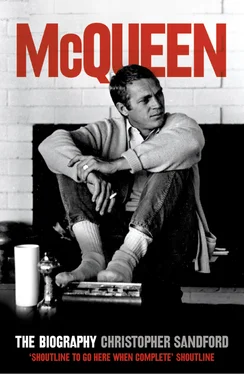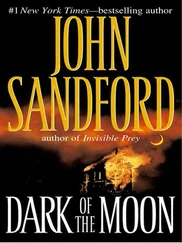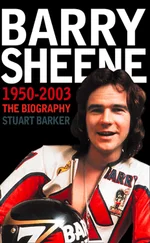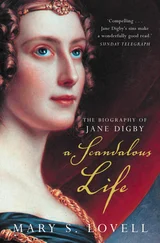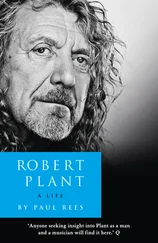The camera loved him. To Four Star and the network he was blue chip – even in black and white, a glossy shot of him, tanned, trim and hardy, with a thatch of fair hair, big eyes and a quizzical grin was enough to bring the sponsors running. Not that Steve just stood in front of the lens and allowed himself to be photographed. He had certain tricks and impenetrable mannerisms like the ‘squinty, butch look’ (at least partly a response to deafness) and the lopsided, crinkly smile; but the forging of a direct personal link to the audience, a vector of just-you-and-me was something they didn’t, and couldn’t, teach him at stage school. One obvious form of it was that McQueen always looked another actor dead in the eye when he spoke or, more typically, listened. It was the instant way of establishing that he was missing nothing, and that he knew what to do about it. Steve was never an all-out action hero in the sense of a Stallone or Schwarzenegger. At the same time he was a man who gave the impression, rightly or wrongly, that he would stop at nothing. If he decided to kill you, he’d kill you; if he thought it sufficient to walk away, he would. What’s more, he patently had a wry, deep awareness of the inherent failings of human nature; the ultimate slipperiness of all relationships. Steve’s internal gyroscope – his ‘bullshit detector’ – never stopped turning. On screen, as in life, precious little got by him. Wayne Rogers, who guested with McQueen on Wanted, particularly remembers his ‘taciturn, Gary Cooper quality that made one feel he was always thinking a lot more than he was saying’. Nick Payne also cites the ‘less-is-more vibe’ that made McQueen the sharply prejudiced, brilliant observer he was. ‘It’s the obvious analogy of the killer iceberg – most of him was submerged.’ Even in those prehistoric days Steve was proving his key theory that what the actor omitted was as vital as what he did. Neile, for her part, remembers his heroes as four men – Cooper, Bogart, Cagney and Walter Brennan – not exactly known for their hamming.
To some people in 1959, McQueen wasn’t so much an actor who knew how to cope as a man consumed with violence. The controversy simmered throughout the series’ first season, at which point it boiled into a crisis. According to a Variety report published in mid-run, Wanted was a ‘brutal, hard-boiled actioner [some] feel single-handedly responsible for the big business pickup in the sale of pistols and shotguns’. The complaint duly made its way to the FBI, who opened a file on both show and star that 12 November. Meanwhile, The Great St Louis Bank Robbery was finally released to an indifferent audience and critics who also used it as a weapon to beat the man who seemed to be ‘blasting at the rest of the world…a loner…obviously the hard type’. While partisan, the description reflected much of what Steve’s closest colleagues felt as well.
At the same time, money was nudging McQueen out of his dark haze. The couple moved upmarket in 1959, buying their first home together in Laurel Canyon’s Skyline Drive, a semi-private street hidden by thick ivy and bougainvillaea. A sign read ‘Patrolled by Armed Security’. Number 8842 with its high window and skylight was, however, fully visible from the road. Standing on a neatly manicured plot landscaped with a trellis and bushes, the back of the house enjoyed a view over Hollywood. Pharaohs like Marlon Brando lived nearby on Mulholland Drive. Steve liked to gun his cars up and down the steep access road, duly collecting more tickets; after he appeared in Long Beach District traffic court that spring, Neile became his designated driver for several months. When not actually working or on the trail, McQueen spent whole days at the Union 76 station on the corner of Laurel Canyon and Ventura, where he oscillated between being a regular guy – talking shop with the mechanics – and that old ‘royal pain in the ass’. He wanted his Porsche hand-waxed for free whenever he bought gas, he announced once. The help scoffed at this. No, it would be good PR for them, Steve insisted, thereby demonstrating the yawning gulf between Hollywood and real life. He also loved to browse at the nearby flea market, where he’s fondly remembered for once having ‘chiselled the price of a Johnny Mathis LP from fifty cents down to something like a dime’.
It was a rare day when McQueen didn’t have at least one row about money. He under-tipped, his cheques bounced. Steve seemed to get tighter as he got richer, and the general theory was that he feared he could lose it as quickly as he’d made it.
Even while he banked $750 a week on Wanted, McQueen used to talk to Neile and a few others about quitting and ‘emigrating to a sheep farm in Sydney’. * To Julian, whom he never saw but wrote to intermittently, he soon began to send curt, moody, often despondent accounts of life, pouring out the frustration and discouragement he felt over the reviews and ‘The Factory’ generally. Steve was never to talk openly about how near he came to chucking Hollywood. Twenty years later, he did recall his misery in a conversation with a flying friend in Santa Paula. ‘I was as confused and down as anyone at one time or another,’ he said. ‘But acting still had all the other jive beat.’ McQueen invariably met such jive by desolation, despair and the threat to quit, quickly followed by a grim if still uncertain determination. By mid 1959 he had begun to cultivate a few key contacts in the industry, like the gossip queen Hedda Hopper. Hopper adored him. She noted affectionately how Steve used what she imagined was his ‘formal’ vocabulary whenever he did interviews. But around the house, or on set, he adopted the lingo of the mudlark he once was: words like ‘bread’, ‘juice’, ‘pork’, ‘jive’ and ‘gas’ would come around like pit-stops on a race track. ‘He was insecure,’ Hopper shrewdly observed. It was a measure of Steve’s depth and strength, though, that ‘he could talk to me about stagecraft, then go out and basically be a grease-monkey for the rest of the day’.
According to the actor Dean Jones, Steve was ‘an odd mixture of ego and immaturity’ when they worked together in 1959. McQueen ‘would always bring his Mare’s Laig with him wherever, and show the rest of us how he could handle it. Look guys. By then he was really fast on the draw. Impressive and endearing as it was, with Steve there was also that sense of a sleeve being tugged for attention.’
A year or so later, Jones was shooting a TV series on the next-door lot to McQueen’s. ‘I remember seeing Steve once going down the cafeteria line at lunch, except, being Steve, he was actually behind the counter, helping himself from over the cooks’ shoulders. I ribbed him about it and he turned on me: “When your show’s a big hit, you can come back here, Jones.”’ But it was a sign of McQueen’s complexity that while still enveloped in his own ego trip he could, and did, reach out to others. Jones also remembers that during one discussion McQueen made a crack about a mutual girlfriend. ‘I turned on my heel, walked out of his dressing room and started up the street. Steve must have sensed my feelings, because he ran after me calling “Dean! Dean!” and apologised with tears in his eyes.’ Genuinely stirred and charmed, Jones realised that ‘McQueen’s fear of being rejected and outdone was what motivated his outer behaviour. When and if he ever relaxed, he was capable of radiant kindness.’
Then, for hours, he was the best company in the world.
The gesture to Jones remained private, though there were similar acts of warmth his fellow actors saw more openly. Sometimes with his director, more often alone, McQueen would spend long afternoons entertaining in the children’s ward of Midway hospital. He befriended the very old and the very young as few others, and later, throughout his life, quietly gave tens of thousands of dollars to medical charities. Nurses who watched him at Midway recall vividly how he listened intently to each child, how, with his already asbestos-worn lungs, he grunted and staggered as he carried them piggy-back, how gently he set them down again, then stayed until nightfall telling stories and laughing with his thrilled fans. Wayne Rogers saw a similar sensibility after he and McQueen did an episode of Wanted. Steve was typically tense and focused during the shoot, but still went out of his way to help the lesser cast shine. Once actors have made it, it’s assumed, without being a given, that most of them will be supportive enough of their peers. They’re all in the same designer padded cell. Even in this context, McQueen stood out as unusually loyal. ‘Steve was an incredibly [sincere] person and helpful to many people.’ Jones, sick children, Hopper and Rogers – the brooding, uptight TV star showed them much the same empathy and tenderness his wife and a few close colleagues saw in him, the ‘real Steve’ that was somehow tragically warped by the orphan he’d been and the legend he became.
Читать дальше
